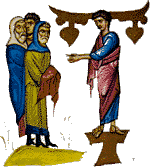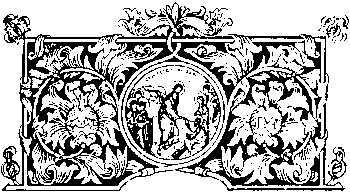Acquiring an Orthodox Mindset: The ‘Fragrance’ and ‘Mindset’ of the Fathers
This section is a close companion to "How to Read the Holy Fathers." In addition to the works cited already

It is worth noting that the spiritual discernment that comes with the gradual acquisition of an Orthodox phronema can be applied to many areas that, to one degree or another, touch upon your life in the Church. One very important area is that of determining what your attitude and response should be towards the myriad of issues shaking the Church today—issues about which this site attempts to make Orthodox Christians more aware. The following quote by Fr. Seraphim gives an example of this discernment:
The apostasy of our times, to a degree unique in Christian history, is proceeding not primarily by false teachings or canonical deviations, but rather by a false understanding of Orthodoxy on the part of those who may even be perfectly Orthodox in their dogmatic teaching and canonical situation. A correct "Orthodoxy" deprived of the Spirit of true Christianity—this is the meaning of Sergianism, and it cannot be fought by calling it a "heresy," which it is not, nor by detailing its canonical irregularities, which are only incidental to something much more important. (emphasis his; from Russia's Catacomb Saints)
It is very important to see the connection between one's ability to sense the "spirit" or "savor" of true Orthodoxy and the discernment of what constitutes a proper response to these issues.
Finally, you should know that not all of the Orthodox Lives of Saints available today are written in the traditional hagiographic style; but rather they are written in an academic, detached, or worldly manner that betrays a lack of humility and reverence. These books may relay the "facts" about a particular Saint's life, but they fail to exude that patristic fragrance and communicate the essence of Orthodoxy in a way that can ultimately lead you to salvation. There are, however, three main publishing houses that continually provide outstanding Lives of Saints: St. Herman of Alaska Brotherhood, St. John of Kronstadt Press, and Holy Apostles Convent in Buena Vista, CO. All of their Lives of Saints are written in a traditional, pious manner and are fully trustworthy. For mostly Greek Saints the "Modern Orthodox Saints" series by Dr. Constantine Cavarnos (Institute for Byzantine and Modern Greek Studies) is also excellent. For more information on these publishers see the Orthodox bookstore section on my site. There are now 12 volumes in that set. There are other very good sources and publishing house that we could list. We include these merely as a suggested starting point.
Elder Basil of Poiana Marului: Spiritual Father of St. Paisy Velichkovsky, by a Monk of Prophet Elias Skete (St. John of Kronstadt Press, 1997). Read an excerpt: Introduction to the Book of the Blessed Hesychios.
Contemporary Ascetics of Mount Athos, by Archimandrite Cherubim (Karambelas), Vol. I and II (St. Herman of Alaska Brotherhood, 1991 and 1992). A soul-profiting compilation of the Lives of numerous, and often unknown, God-bearing Fathers of our day. The contents of these books brings to mind a vast garden of beautiful flowers.
The Prologue from Ochrid (4 volumes), by Bishop Nikolai Velimirovich. This is the only year-through comprehensive Orthodox collection of Lives of the Saints in English. The four volumes provide short lives of one or more of the Saints commemorated on each day of the year, together with instructive homilies and meditations. Should be kept and read in every Orthodox home. The Lives of Saints portion from The Prologue was also recently put online.

As a prelude to the next two books, we highly recommend reading "Answer to a Critic," by Fr. Seraphim Rose of Platina. This is Appendix III from the 1995 edition of Fr. Seraphim's most popular work, The Soul After Death. What he has to say about the modern, scoffing, un-simple, impious mindset of many people today, including many Orthodox (!), is very instructive.
The Lausiac History of Palladius, Bishop of Helenopolis and Aspona. This is an early 5th-century original-source collection of the Lives of Saints of the Egyptian Thebaid. Bishop Palladius himself spent the years 406-412 with the ascetics of Upper Egypt while exiled by Emperor Arcadius. In his preface he writes that "This book is... (written) with a view of stirring to rivalry and imitation those who wish to realize the heavenly mode of life and desire to tread the road which leads to the kingdom of heaven." Available from Eastern Orthodox Books, P.O. Box 302, Willits, CA, 95490.
The Ecclesiastical History of the English People, by St. Bede. This 8th-century work is available in numerous editions, the most popular being the Penguin Classics edition. An excellent companion volume, also published by Penguin, is The Age of Bede. Interestingly enough, this used to be published under the title The Lives of the Saints; but marketing needs have prevailed it seems! The Age contains St. Bede's "Life of Cuthbert" and the "Lives of the Abbots of Wearmouth and Jarrow," among other things. These books stand fully in the traditional hagiographic style of the Church and should be read by all, especially us Orthodox living in the West.
"What was it that above all struck me in the works of the Fathers of the Orthodox Church? It was their harmony, their wondrous, magnificent harmony. Eighteen centuries, through their lips, testified to a single unanimous teaching, a Divine teaching!"
—St. Ignaty (Brianchaninov)

